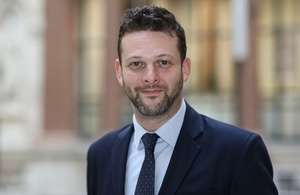Gerald Chiatoh Etangayong, from South East London (SE3), was the sole director and shareholder of GEC Consultancy Ltd, a company that was not authorised by the FCA.
Incorporated in 2014, GEC offered investment services for clients wanting to trade in the global financial markets, as well as training for people who wanted to conduct their own trades.
However, just over a year later the company experienced financial difficulties and by November 2015, GEC was placed into creditors voluntary liquidation.
The Insolvency Service looked into the affairs of the company and the 30-year-old’s conduct while director and discovered several instances of wrongdoing.
Investigators found that GEC had been operating an investment scheme when it managed foreign currency investments on behalf of a company based in the British Virgin Islands.
GEC received more than £194,000 worth of funds from investors but only invested around £96,000 in a foreign currency investment platform and while, the funds increased in value by approximately £22,000, only around £57,000 was paid back to the investors.
When asked where the remaining funds ended up, approximately £61,000, Gerald Etangayong said he used the money to settle GEC’s outstanding liabilities and repay loans, while also pocketing more than £17,000 for himself.
Gerald Etangayong also allowed GEC to accept deposits from investors despite knowing that the company’s promotional material was misleading.
Exaggerated claims on the marketing literature included that funds would be ‘safe and secure at all times’, would be held in a segregated account and investors would receive a full reimbursement of all the capital invested at the end of the investment period.
However, Gerald Etangayong should have advised his investors of the key risks, including potential large losses and the highly volatile and unpredictable nature of the foreign exchange market.
As a result of director’s misconduct, at least £200,185 remains outstanding to investors and on 8 October 2018 the Secretary of State accepted a disqualification undertaking from Gerald Etangayong.
Effective from 29 October 2018, Gerald Etangayong is banned for 11 years from directly or indirectly becoming involved, without the permission of the court, in the promotion, formation or management of a company.
Robert Clarke, Head of Company Investigation at the Insolvency Service, said:
Gerald Etangayong abused his position by knowingly taking people’s money for investments he knew were never viable.
An 11-year disqualification is a substantial ban and should serve as a warning that we will always look to remove from the business community those directors who act below the standards that should be expected of them.
Notes to editors
Gerald Chiatoh Etangayong is of South-East London (SE3) and his date of birth is December 1987
GEC Consultancy Ltd (Company Reg no. 09128919).
A disqualification order has the effect that without specific permission of a court, a person with a disqualification cannot:
- act as a director of a company
- take part, directly or indirectly, in the promotion, formation or management of a company or limited liability partnership
- be a receiver of a company’s property
Disqualification undertakings are the administrative equivalent of a disqualification order but do not involve court proceedings.
Persons subject to a disqualification order are bound by a range of other restrictions.
The Insolvency Service administers the insolvency regime, investigating all compulsory liquidations and individual insolvencies (bankruptcies) through the Official Receiver to establish why they became insolvent. It may also use powers under the Companies Act 1985 to conduct confidential fact-finding investigations into the activities of live limited companies in the UK. In addition, the agency deals with disqualification of directors in corporate failures, assesses and pays statutory entitlement to redundancy payments when an employer cannot or will not pay employees, provides banking and investment services for bankruptcy and liquidation estate funds and advises ministers and other government departments on insolvency law and practice.
Further information about the work of the Insolvency Service, and how to complain about financial misconduct, is available.
Media enquiries for this press release – 020 7674 6910 or 020 7596 6187
You can also follow the Insolvency Service on:
